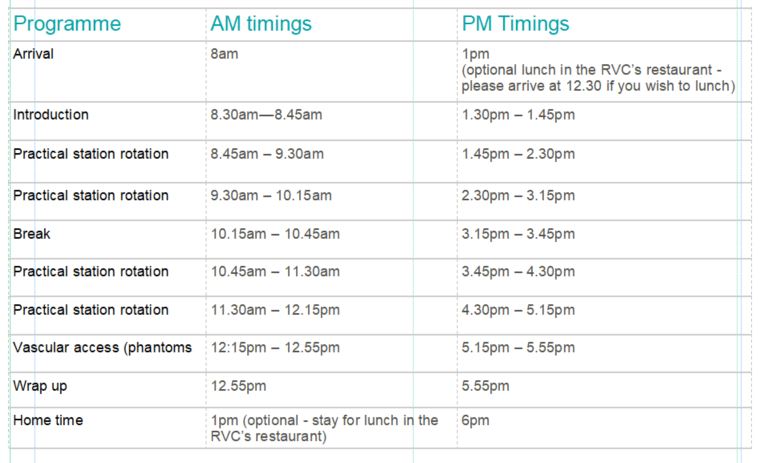
Key Information
CPD Hours: 9 hours (5 hours for the recorded webinars and 4 hours for the practical session)
Course Length: See above
Course Format: Recorded lectures, case-based discussions and practical sessions
Enrol Now
Course Information
- Fundamentals of POCUS: Indication, settings and probe selection
- Lung and pleural space POCUS: Perform a systemic pleural space and lung scanning and recognise key sites to detect pathology including lung pathology, small volume pneumothorax and pericardial effusion
- Cardiac POCUS: Basic cardiac views, including subxiphoid scanning to assess for presence of pericardia effusion, views to assess left atria:aorta and subjective assessment of contractility
- Caudal vena cava assessment: Recognise the sites and technique for assessment of the caudal vena cava
- Abdominal POCUS: Views to identify peritoneal effusion, abdominal fluid scoring based on 4 scanning points, bladder volume estimation and sites and findings compatible with emergent conditions including the halo sign and pneumoperitoneum
- Ultrasound guided vascular access: Demonstrate the role of ultrasound in assisting in difficult intravenous access
Are you keen to use or start using point-of-care ultrasound (POCUS) in managing your emergency patients, do you use POCUS but lack confidence in your practical skills? Do you want to get hands-on practice of POCUS with leading teachers in the field?
This course will include 8 hours of online lectures to be accessed in your own time, at your own pace prior to a 4-hour hands-on practical on Tuesday 9th June 2026 with an option for AM Session (8am arrival) or PM Session (1pm arrival). Through practical, supervised hands-on training using live dogs everyone will have the opportunity to learn and practice all of the common veterinary POCUS techniques currently used to assess the abdomen, pleural space, lung, and heart. Phantoms training models will be used to demonstrate and practice ultrasound guided vascular access.
This practical will focus on techniques developed by the instructors to improve accessibility and help facilitate incorporation of POCUS into everyday emergency practice. The online learning material you will be able to review in your own time before the practical course date and includes a forum for you to be ask questions prior to the scanning day. Part of the practical course will involve using chicken breasts wrapped in clingfilm. Please advise us in advance if you would prefer a substitute to the chicken.
This course consists of recorded webinars and a day of practical sessions. Please note: The online lectures are a pre-requisite for attending the onsite day (these will be available to view approximately 4 weeks prior to the practical day). These lectures allow you to learn at your own pace and can be listened to at a convenient time. This allows delegates to have more time once onsite for practical, hands-on teaching sessions. On the practical day, the tutors will be happy to answer questions relating to the online lectures, however to get through everything planned for the practical day, they will not be able to cover the content in the same level of detail as the online lectures. It is therefore imperative that all lectures are viewed in advance of attending.
Why do this this course?
This fundamental point-of-care ultrasound course is designed for those veterinarians who want to or who are starting to use POCUS in their practice but lack confidence in their skills. The lecture content focusing on practical use and clinical cases will complement the on-site training. The four-hour onsite training with be entirely practical comprises hand-on experience with instructors to acquire skills and improve confidence in fundamental aspects of lung, pleural space, abdominal and cardiac POCUS.
Delegates will gain confidence in:
- Performing a systemic pleural space and lung ultrasound to detect lung pathology and pleural space disease including small volume pneumothoraxes and pleural effusion.
- Detect and perform abdominal fluid scoring as well as key organ assessment
- Perform a focused echocardiography to detect the presence of a pericardial effusion, assess the left atria:aorta and contractility.
Attendees will go home feeling more confident in integrating POCUS in to practice as an adjunct to their physical examination.
Programme for both sessions
Soren Boysen, DVM DipACVECC
Professor of Veterinary Emergency and Critical Care
University of Calgary
Laura Cole, MA VetMB MVetMed CertVPS CertAVP(ECC) DipACVECC DipECVECC MRCVS
Lecturer in Veterinary Emergency and Critical Care Medicine
The Royal Veterinary College
Simon Cook, BSc BVSc MVetMed DipACVECC DipECVECC MRCVS
Senior Lecturer in Veterinary Emergency and Critical Care Medicine
The Royal Veterinary College
Erica Tinson, BSc BVSc (Hons) MVS DipACVECC MRCVS
Lecturer in Veterinary Emergency and Critical Care Medicine
The Royal Veterinary College
Proudly supported by:



